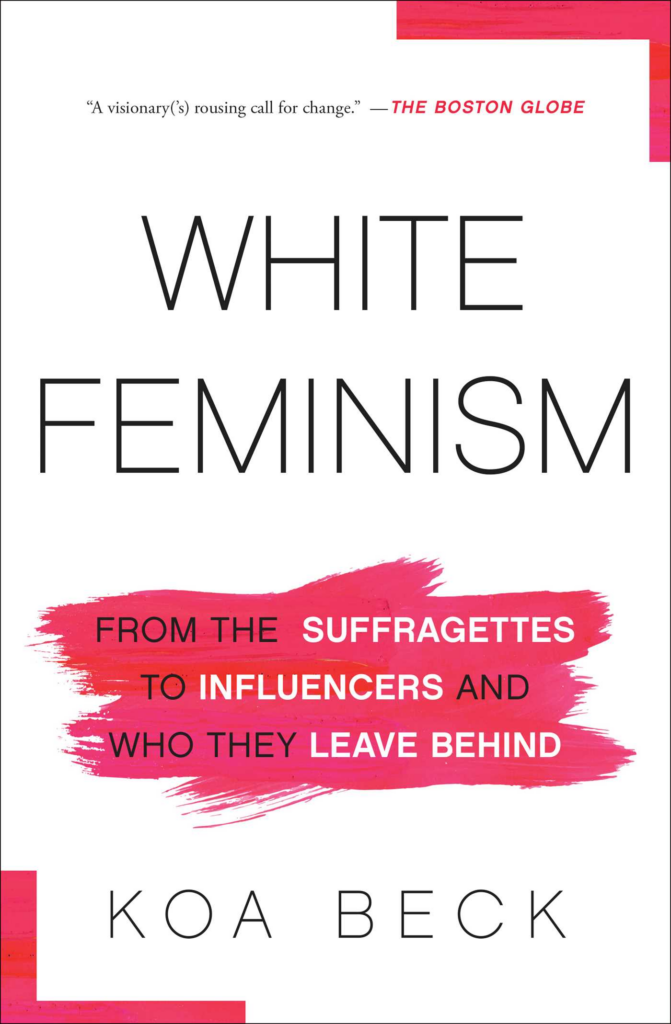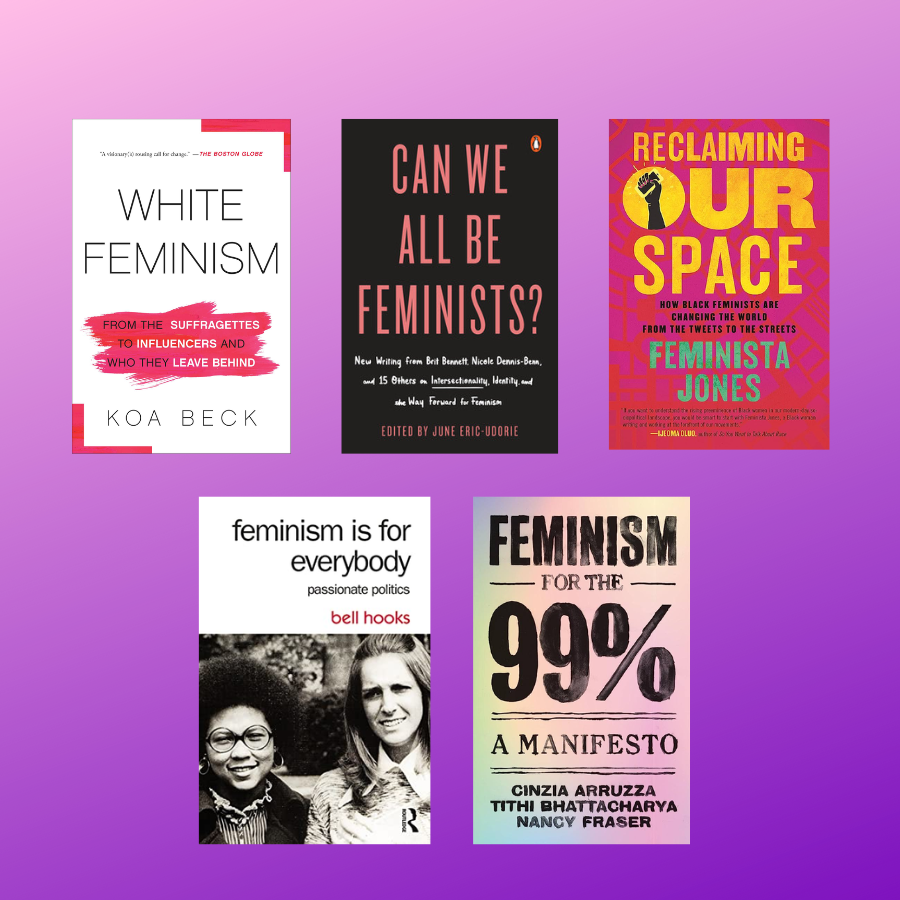This post may include affiliate links, which means we make a small commission on any sales. This commission helps Feminist Book Club pay our contributors, so thanks for supporting small, independent media!
It seems like fantastic feminist non-fiction is being churned out so often that it is easy to miss a great title without realizing it. And with all the new stuff coming out, sometimes classic and backlist non-fiction can get pushed to the backburner as well. (This is a big reason I joined book communities online back in 2017; it is easier to keep up with new releases and essential reads when you’re surrounded by like-minded bookish friends.)
While summer is typically reserved for “lighter” reads, you can’t beat a thought-provoking non-fic to mix up those romances and thrillers. If you’re feeling a little behind in your feminist non-fiction reading, I’ve got some suggestions for you! These titles are centered around feminism and social justice, both globally and in the U.S.. Most of these titles are in conversation with each other, and solidify some points the other titles make. Coming in at 300 pages or less, they’re perfectly portable for reading by the water this summer.
Feminism for the 99 Percent: A Manifesto by Cinzia Arruzza, Tithi Bhattacharya, and Nancy Fraser

Published in 2019. 85 pages.
Feminism for the 99% points to global examples to build on its main premise: a new feminism is needed to address society’s problems, and it means throwing out the feminism that supports the 1% (aka the patriarchy and capitalism). “We write not to sketch an imagined utopia, but to mark out the road that must be traveled to reach a just society.” For the writers of this manifesto, this means looking to the international feminist strikes that broke out in 2017 and 2018. It also means supporting any anti-systemic, anti-capitalist, and anti-racist movements, because that is the only way to get closer to social equality and justice, the ultimate goal of feminism.
Feminism is For Everybody: Passionate Politics by bell hooks

Published in 2000. 123 pages.
Anything bell hooks wrote is a classic in feminist literature, in my opinion. As a cultural critic, she spent her career writing mostly about race, feminism, and class. In Feminism is for Everybody, she wrote to show how feminism is something we should all know about and be advocates for. The book is straightforward and is especially accessible for those who might be new to feminism. Her ideas are focused on the importance of community and care in order to reach true equality and justice: “Feminist thinking teaches us all, especially, how to love justice and freedom in ways that foster and affirm life.”
Reclaiming Our Space: How Black Feminists are Changing the World from the Tweets to the Streets by Feminista Jones

Published in 2019. 171 pages.
In Reclaiming Our Space, Feminista Jones writes to point out all the ways Black women have been at the forefront of the shifting landscape of feminism through digital communities like Twitter. For example, the use of hashtags created by Black feminists, like #BlackLivesMatter, #SayHerName, #BlackGirlMagic, and #MeToo have all been used to mobilize and build entire movements. Aside from movement-building, they’ve also used these spaces to teach a new generation about Black feminist ideology. She also highlights important cultural moments that focus on the need to work together to dismantle oppression in its various forms.
Can We All Be Feminists? Edited by June Eric-Udorie

Published in 2018. 237 pages.
Edited by Nigerian feminist activist and writer June Eric-Udorie (who was 20 at the time of its publication!) Can We All Be Feminists? centers intersectionality as the key to feminism. She shares how she came into feminism, offers a working definition, and points out what is not working in mainstream (aka white) feminism. She even goes as far as to list all the ways that marginalized and privileged people can take part in the intersectional feminist movement. All the contributing essays in the book center the voices of marginalized writers speaking on specific issues, like racism, disability, immigration, and misogyny.
White Feminism: From the Suffragettes to Influencers and Who they Leave Behind by Koa Beck

Published in 2021. 242 pages.
In White Feminism, Beck deep-dives into the history of white feminism and how it has always functioned to exclude marginalized voices. However, it is made clear that there has always been pushback from BIPOC, LGBTQ+, and disabled communities. The author melds feminist theory with her daily experiences to drive the main arguments home. However, the resounding call in this book is that in order to enact meaningful change, feminists must think, act, and live for the collective. Check out this interview between Renee and the author, and this recent review from Yasi for further context if you’re interested in this book.
Happy reading!


